AUGUSTA — Gov. Paul LePage vowed Wednesday to cut Maine’s income tax, reform welfare and reduce the size of state government over the next four years, fulfilling what he believes is a directive from Maine voters.
The governor made those promises and several others during a 40-minute inauguration speech punctuated by reflections on a brutal re-election campaign and occasional humor. The address before a large crowd of supporters and state lawmakers at the Augusta Civic Center kicked off the governor’s second term, a victory that defied pundits’ predictions that the controversial remarks and confrontational style of governing that marked his first term would lead to LePage’s defeat.
“The people of Maine have told us that they want us to keep reforming government, they want better jobs, they want welfare reform, they want lower energy costs, lower taxes,” he said. “They want a smaller, more efficient state government.”
LePage’s speech was heavy on rhetoric and broad policy goals while avoiding many specifics of his legislative agenda. However, he said that one ambitious proposal will be revealed when he presents his two-year budget Friday.
“I’ll give you a hint. When the budget goes up on Friday, we’re going after the income tax,” he said, referencing his long-harbored goal of eliminating the state’s income tax. The governor acknowledged that replacing about $1.4 billion in state revenue is a tall order and hinted that it could take time.
“My long-term vision is very, very simple: It’s Maine without an income tax,” he said, adding that his first step in that direction would seek to eliminate the estate tax and income tax on pensions.
Reducing income taxes was among the highlights of LePage’s first-term accomplishments. In addition to producing a $400 million tax cut, the largest in Maine history, the governor and Legislature also made a $186 million state Medicaid debt repayment to Maine hospitals, set a five-year benefits limit that reduced Temporary Assistance for Needy Family caseloads by 50 percent, and passed a law that allowed the first charter schools.
LePage said he hoped to build on those successes in the next four years with an equally ambitious agenda.
He led his speech with welfare reform, an issue that dominated his campaign. He vowed to fulfill his promise to reduce Maine’s public assistance programs.
“Welfare reform is very, very dear to my heart,” he said, a nod to his rough-and-tumble rise from poverty, a personal past that he has used to insulate himself from those critical of his welfare agenda.
He said he planned to introduce a so-called tiered welfare reform plan that would help transition people from public assistance to employment, while changing income thresholds that some argue act as a disincentive to take a job. LePage implored the Legislature to join him in the effort.
“We want Mainers to know prosperity, not poverty,” he said, later adding, “We won’t rest until every man, woman and child gets the chance to achieve the prosperity that they deserve and get them out of poverty.”
LePage also revisited his plan to reduce Maine’s energy costs. He said Maine needs to expand its natural gas capacity to lower energy costs, a result that he said is critical to luring investment from big businesses and retaining current employers.
In addition, the governor talked about a plan to reduce state aid to municipalities, also known as revenue sharing. He acknowledged that doing so will be unpopular with officials in the state’s more than 450 towns and cities, who “are the first to blame the state” for their fiscal woes. The governor noted that he too had once decried such cuts.
“I’ll admit it, when I was mayor of Waterville I wanted the state to pay for it (local government),” he said. “Now that I’m governor, it (municipal revenue sharing) is expensive!”
His remarks contrasted with those he made at the same location in 2011, after a narrow victory that coincided with a Republican wave election. Back then, the governor, flanked by four of Maine’s six former governors, vowed to put “people before politics” while pursuing an aggressive reform agenda. On Wednesday, LePage took the stage alongside his family and promised bold initiatives that he said voters demanded when they delivered him a decisive victory in November.
In 2011, the governor took the Blaine House with a Republican-controlled Legislature. The tough-talking firebrand advanced an array of conservative policies, but Republican lawmakers reluctant to attach their future to his polarizing governing style balked at his more controversial proposals. Their reluctance seemed justified when Democrats roared back to reclaim the entire Legislature in 2012. But in 2014, LePage and his tightly focused campaign tapped visceral issues, such as welfare and immigration, and packaged them in an economic message that resulted in a victory.
He triumphed despite a full-throated campaign by Democrat-aligned groups that poured a combined $7.3 million into the effort to defeat him.
LePage joked about the negative ads that were run against him, saying the ads were so bad “that I started hating myself.”
He noted that the last two years of his first term were marked by gridlock and acrimony with the Democrat-controlled Legislature, but said he was hopeful that the two sides could work together this time.
“I really do want to work with you. Just promise me you won’t try to sell the Blaine House,” he said, referring to a 2013 bill by Rep. Diane Russell, D-Portland, that would have sold the Maine governor’s mansion to help pay for a 2011 tax cut passed by the Legislature and championed by LePage. The bill was killed before a public hearing and criticized by Democrats and Republicans.
LePage’s re-election bid was buoyed by more than $4 million in support from the Republican Governors Association, helping to fund his defeat of former Democratic U.S. Rep. Mike Michaud and independent Eliot Cutler. LePage’s 48.4 percent share of the vote was the third best in recent history, and his 291,937 votes were the most for a Blaine House candidate in 30 years. Meanwhile, Republicans made significant gains in the Legislature, winning the majority in the Senate and adding seats in the Democrat-controlled House.
The victory for LePage and other Maine Republicans came against a national backdrop that saw the party win 68 of 98 partisan state legislative chambers across the nation.
LePage’s win and his strong performance in traditional Democratic strongholds have raised questions about the once-dominant Maine Democratic Party, its ability to connect with blue-collar voters and its bench of candidates for statewide office. Those questions will begin to be answered in 2016, the next legislative election and a presidential election year.
For now, however, the question is how the bruising November defeats affect Democrats in the House of Representatives. House Speaker Mark Eves, D-North Berwick, having helped retain the majority after the Republican wave, has vowed to work with LePage while not compromising Democrats’ core values.
On Wednesday, Eves said he heard many points in LePage’s address that Democrats and Republicans can work on together, such as focusing on jobs, the economy and increasing Mainers’ wages.
“Relationships are going in a way that foster that, which I am encouraged by, and the people of Maine expect us to do this,” Eves said. “We have a great opportunity in divided government to demonstrate that we can, and I look forward to doing that.”
On the issue of eliminating the income tax, Eves had yet to see the details of any proposal from the governor, but he suggested that Democrats have other priorities.
“Our focus is going to be on property tax relief for middle-class families, businesses and seniors,” Eves said. “That is going to be a driving force … and a large focus of ours in the legislative session.”
Senate President Mike Thibodeau, R-Winterport, said LePage did “a tremendous job” of sharing his agenda for the next several years. For Thibodeau, there were no surprises in the speech.
“I think the governor has been talking to the people of the state of Maine about these issues for years now. He campaigned on them,” Thibodeau said. “I think we all should have anticipated that the governor was going to talk about the energy policy in the state, talking about getting some checks and balances on the welfare situation in our state.”
Staff Writer Kevin Miller contributed to this report.
Send questions/comments to the editors.



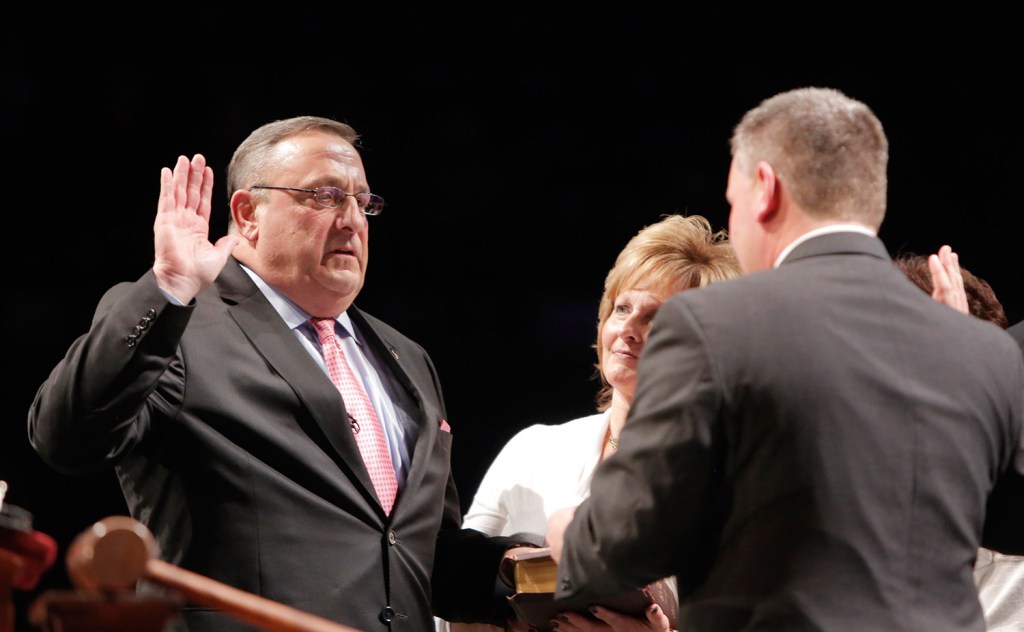
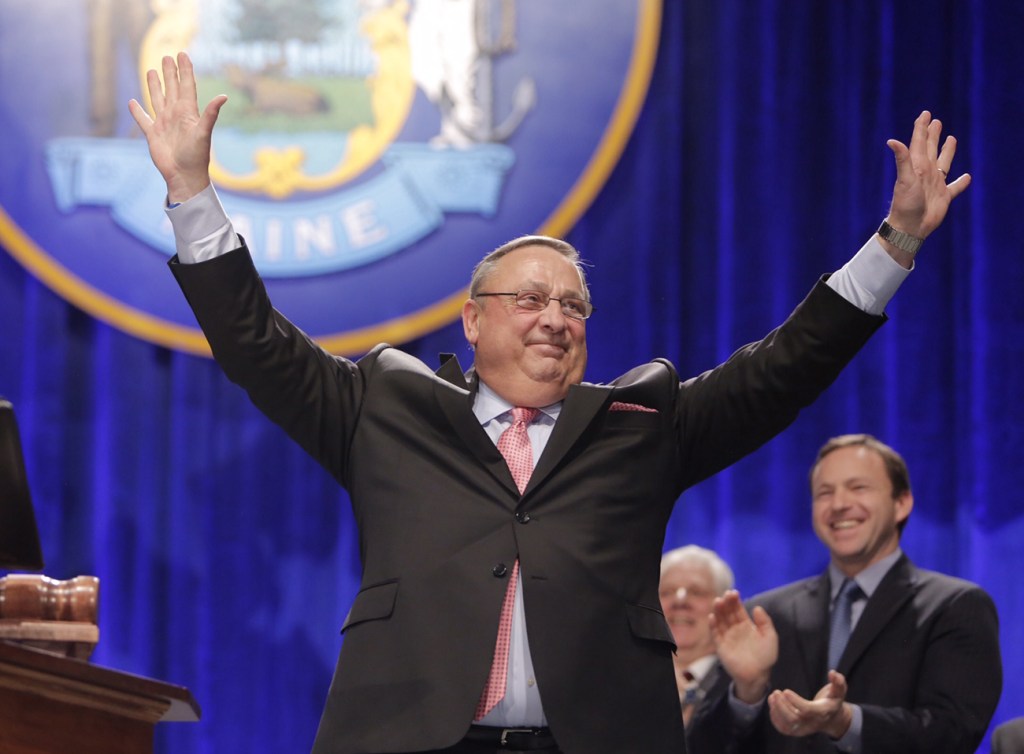
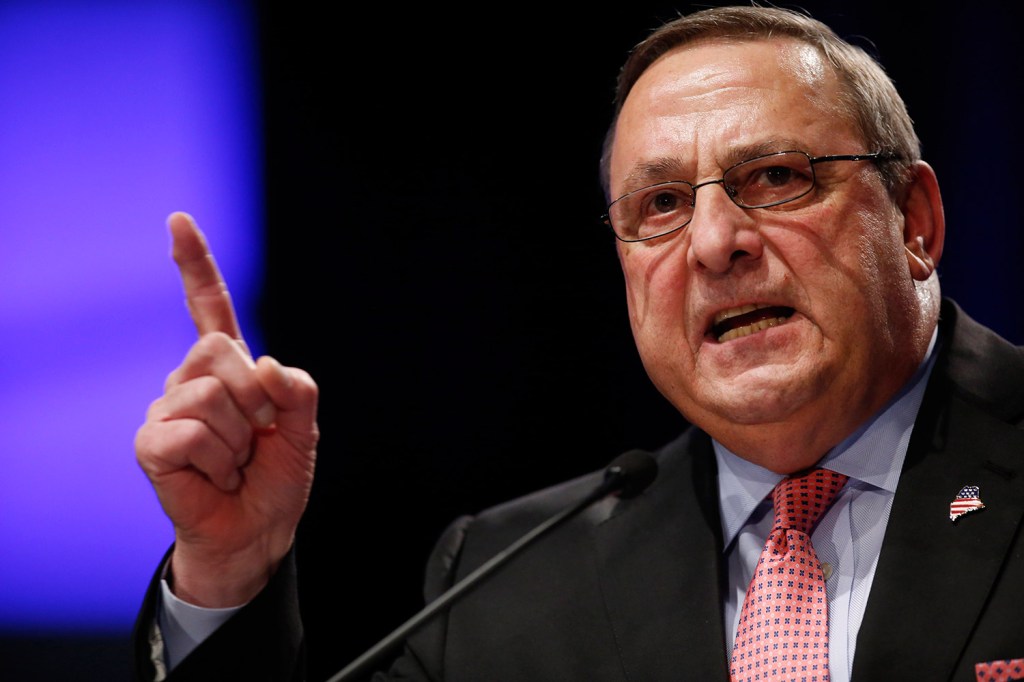
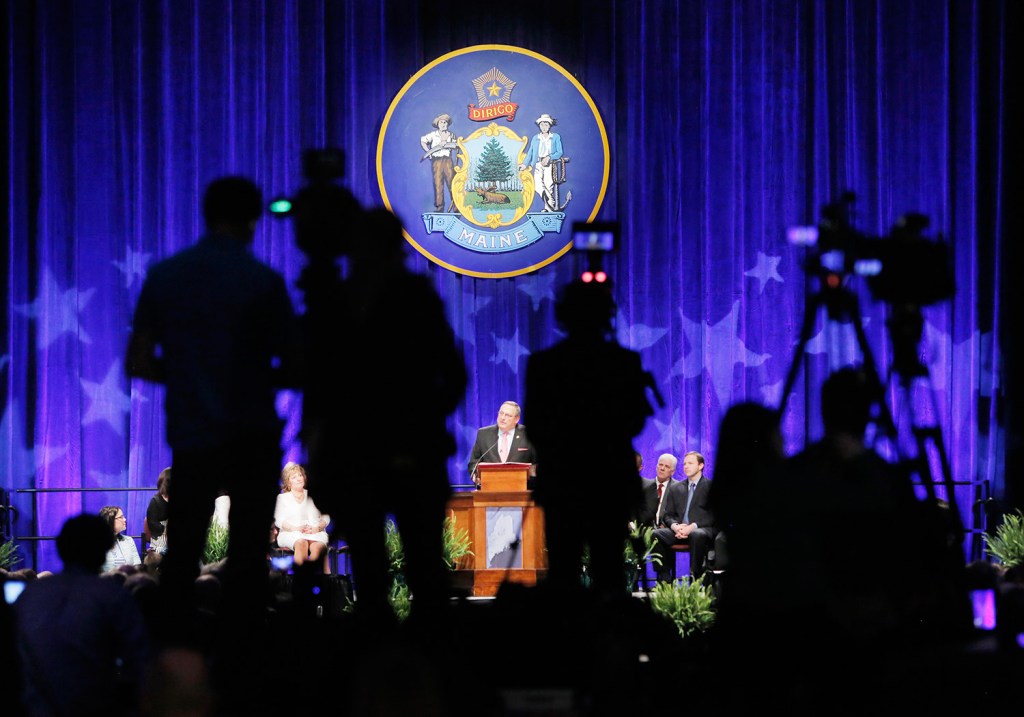

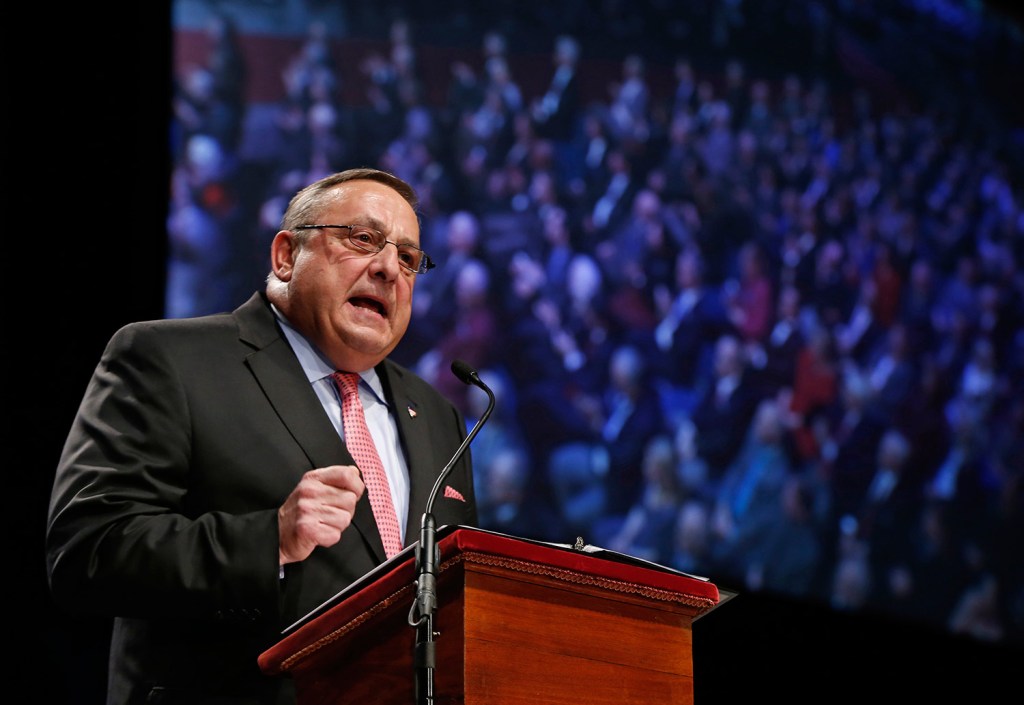

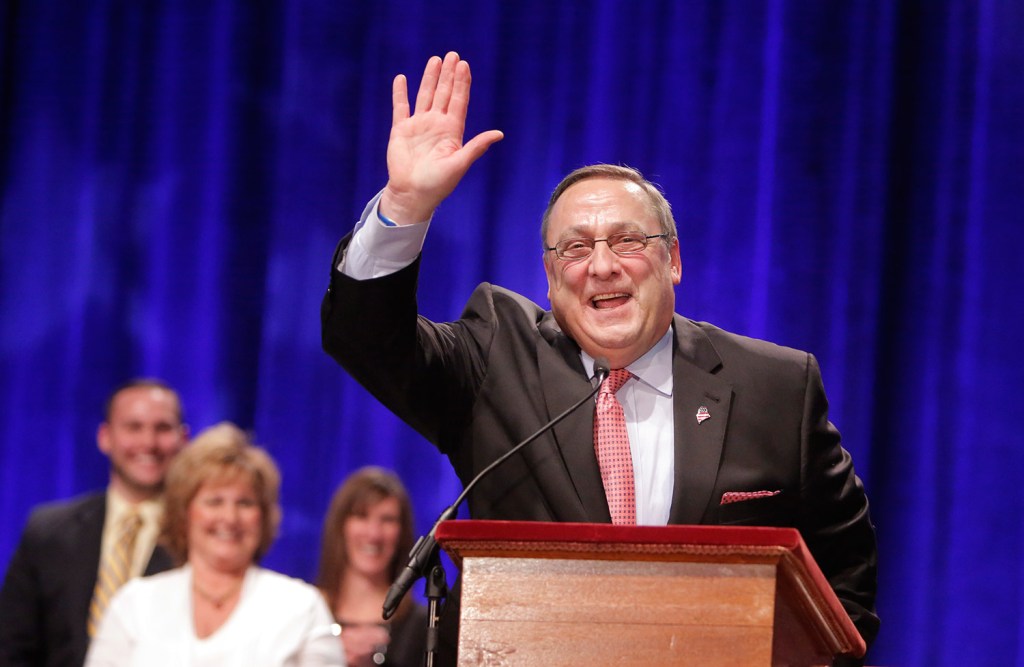
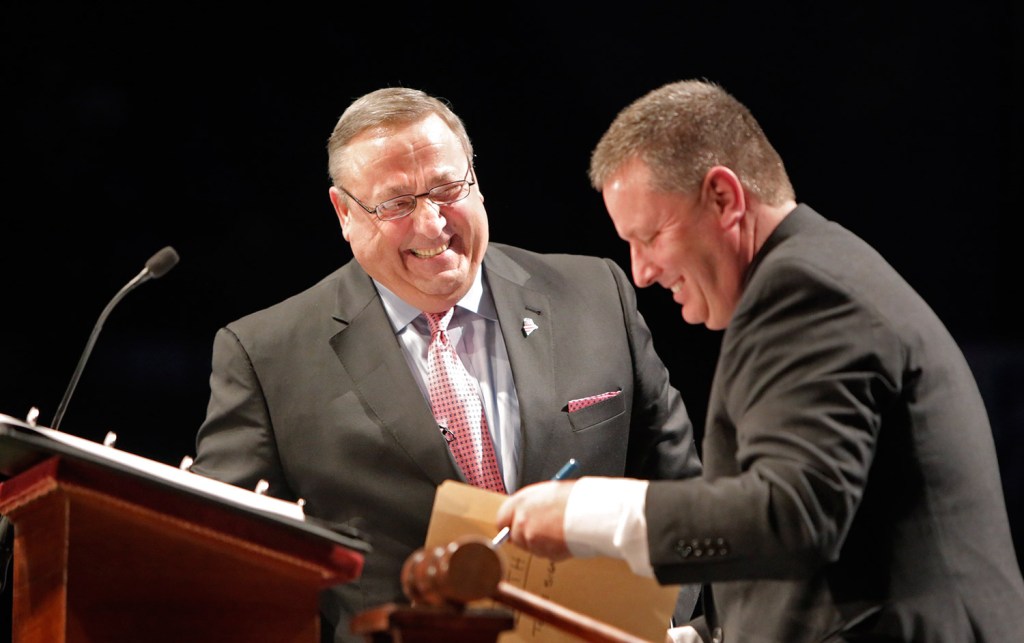

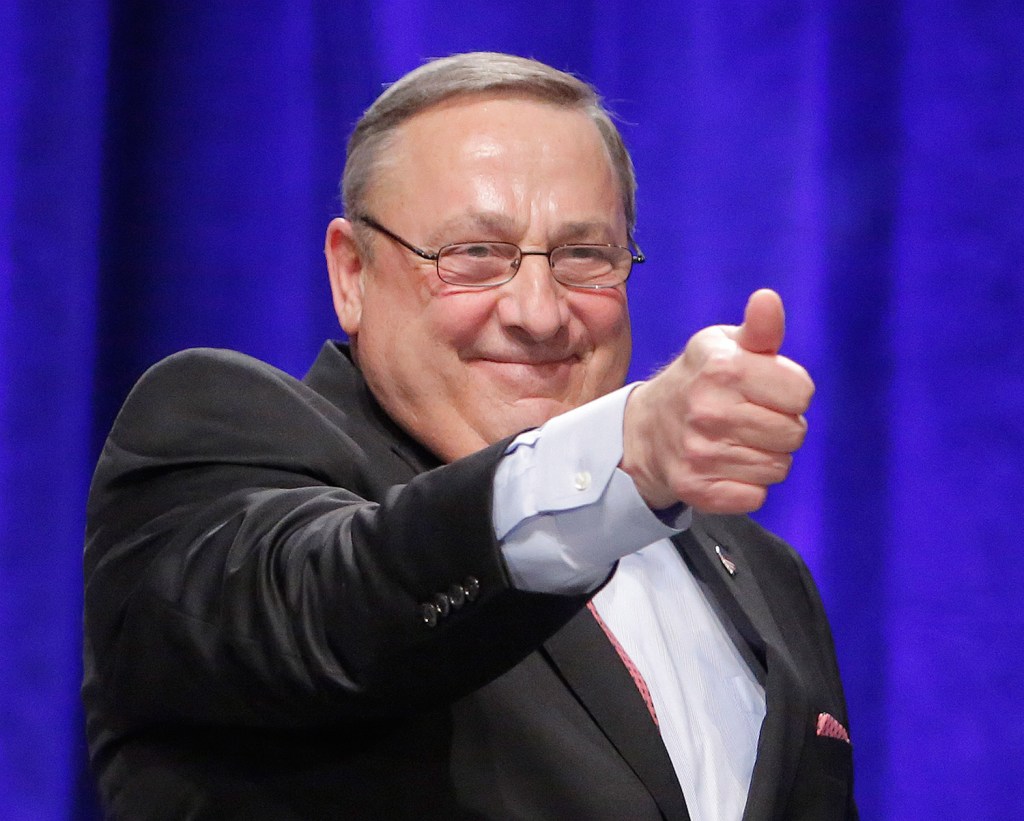

Success. Please wait for the page to reload. If the page does not reload within 5 seconds, please refresh the page.
Enter your email and password to access comments.
Hi, to comment on stories you must . This profile is in addition to your subscription and website login.
Already have a commenting profile? .
Invalid username/password.
Please check your email to confirm and complete your registration.
Only subscribers are eligible to post comments. Please subscribe or login first for digital access. Here’s why.
Use the form below to reset your password. When you've submitted your account email, we will send an email with a reset code.